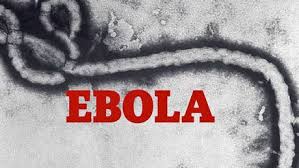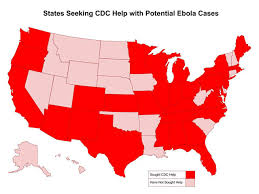Dr. Elting appeared on News Channel 8 this past Wednesday, October 22nd, with Bruce Depuyt to discuss Ebola virus. Depuyt asked Dr. Elting, an infectious disease specialist, for insight into the virus; particularly focusing on ways the virus can be contracted, and how we may be at an increased risk when using air travel. 
From the broadcast:
Up first – Answering your questions about Ebola. The news of late has been good. The people who came into contact with those who cared for patient Thomas Duncan are said to be symptom-free. And the potential cases of Ebola that we’ve seen on the news, those have turned out to be false alarms. Nonetheless, we know there is anxiety about the Ebola virus – how it is spread, how it is treated, and whether it’s likely we’ll see more cases in the days, weeks, months ahead.
Joining us now is Dr. Jeffrey Elting. He’s former head of infectious disease control and response for the DC Hospital Association. He is now the Medical Director at the Presidential Healthcare Center in the National Capitol region.
“The public health sector has stepped up its game” Dr. Elting said. “It is important to keep everything in perspective by taking into account that someone dies every 34 seconds of a heart attack. We have 30,000 people killed in  motor vehicle accidents each year, and we have influenza that kills millions of people. Comparatively, we’ve had 1 person unexpectedly come to the US with Ebola who unfortunately died from the virus, but aside from some initial missteps, the rest of the cases have been managed quite well and people are recovering.” “Ebola is a special case and more deadly than others,” he said. “That’s why we have decontamination units, isolation rooms, stockpiles of medication, protective suits and face masks.”
motor vehicle accidents each year, and we have influenza that kills millions of people. Comparatively, we’ve had 1 person unexpectedly come to the US with Ebola who unfortunately died from the virus, but aside from some initial missteps, the rest of the cases have been managed quite well and people are recovering.” “Ebola is a special case and more deadly than others,” he said. “That’s why we have decontamination units, isolation rooms, stockpiles of medication, protective suits and face masks.”
Dr. Elting also spoke about how the Ebola virus is transmitted. “The transmission
method for Ebola is generally from contaminated fluid from infected patients. It’s not transmitted by respiratory droplets like the flu or a cold.”
He also addressed the symptoms experienced after contracting Ebola. “The initial symptoms are going to be somewhat flu-like. You’re going to have a fever, headache, muscle aches, irritation of the throat, and then it will progress. Ebola is a hemorrhagic virus, therefore, it can cause bleeding into the eyes, lungs and intestinal system. Distinguishing patients with Ebola may become more challenging as the flu season approaches.”
View the entire interview here.
The Presidential Healthcare Center’s preventative programs include emergency preparedness advice to keep you safe and healthy no matter where you go.


